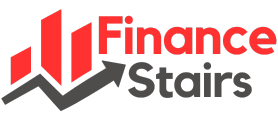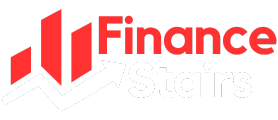Starting a higher education journey often requires a sizable financial investment, and for some students, student loans turn out to be an essential piece of their general financing plan. Comprehending the complexities of student loans is essential for making very informed selections that complement one’s academic objectives and financial stability. This article explores the numerous parts of higher education financing, including information on available loan kinds, how to apply, what alternatives are available for repayment, and important things to remember for the two students and their families.
Key Takeaways
- Higher education financing assists students with affording school and raises educational options
- Private loans might require a credit check and have fluctuating rates, while federal loans give interest reductions
- FAFSA completion is crucial, and federal loans with fixed rates and flexible repayment choices are recommended
- Planning within the grace period and adopting income-driven repayment programs simplify post-graduation loan payments
- Financial empowerment in education includes appropriate borrowing, grants and scholarships, and financial help.
The Importance of Student Loans in Higher Education Financing
With regards to helping the people who need to set off for college fill the financial hole, student loans are essential. These higher education financing provide students a lifeline to obtaining the degree they need when tuition costs develop. Student loans provide many individuals admittance to educational possibilities that they may not otherwise have. They ensure that students don’t need to stress over paying for their entire education tuition, books, and living costs so they can focus on their academics.
Types of Student Loans: Understanding the Landscape
Federal Student Loans
Federal student loans come with beneficial terms and shields and are issued by the U.S. Department of Education. In light of financial necessity, subsidized loans relieve costs by not charging interest while the student is signed up for classes.
Private Student Loans
These private banks’ loans are intended for students who might require more cash than what their government loans can provide. Private loans are more unpredictable because of their variable interest rates and, as a rule, the demand for a credit check. It is essential to fathom the subtleties of these loans to use sound judgment.
The Application Process: Navigating the Journey
FAFSA (Free Application for Federal Student Aid)
Quite possibly, the main move toward the student loan application process is completing the Free Application for Federal Student Aid (FAFSA). This basic form is essential for determining one’s eligibility for government assistance, which includes loans, work concentrating on programs, and grants. It provides a careful rundown of a student’s financial situation.
Choosing the Right Loan
When the FAFSA is finished, students go to the crucial phase of carefully considering their loan options. As a result of their positive terms, federal loans which are characterized by fixed interest rates, income-based repayment programs, and obligation forgiveness initiatives often come highly recommended.
Repayment Strategies: Preparation for the Future
Grace Period and Planning Ahead
The majority of student loans include a grace period after graduation that gives graduates time to prepare before starting to reimburse their obligations. For a smooth transition into loan payments, this intermediate period requires meticulous planning, comprehension of the loan conditions, and creating a thoroughly examined financial system.
Income-Driven Repayment Plans
Regularly scheduled payments for federal student loans are changed because of the borrower’s income under these programs. This system ensures adaptability and maintains the loan payments’ sensitivity by the borrower’s financial situation.
Key Considerations and Responsible Borrowing
Borrowing Wisely
Even though student loans are often important, borrowing responsibly is crucial. A judicious borrowing plan includes keeping an eye on the general sum acquired, keeping up with interest rates, and estimating future earning potential.
Exploring Grants and Scholarships
It is desirable to give grants and scholarships a higher priority than loans. These financial assistance have no recompense requirements, which diminishes the total financial burden and supports the utilization of sustainable funding hotspots for education.
Facing Financial Challenges: Seeking Assistance
Loan Deferment and Forbearance
Financially struggling students might consider loan deferral or forbearance, which provide momentary assistance by lowering or stopping loan payments.
Financial Counseling Services
To assist students with navigating the complexity of student loans, institutions often provide financial counseling services. Future financial issues might be avoided by getting assistance quickly.
The Road Ahead: Planning for Post-Graduation
Loan Forgiveness Programs
Loan forgiveness programs might provide some relief for those thinking about working in public service or nonprofit organizations, encouraging alumni to have a positive effect in their communities while relieving them of some of their student obligations.
Financial Literacy and Long-Term Planning
Including financial literacy instruction in higher education programs gives students a superior handle on the long-term impacts of their student loans and gives them the tools they need to deal with their cash after graduation.
Conclusion
In outline, there are a wide range of kinds of student loans, as well as application processes, repayment plans, and important factors to consider. A careful understanding of student loans empowers students to pursue informed decisions that help their long-term financial security and academic objectives. When utilized sensibly, student loans might be an effective instrument for reaching academic objectives without jeopardizing one’s financial stability. Students and their families may comfortably navigate the complex financial environment of higher education by practicing responsible borrowing, making early financial plans, and being informed of their available alternatives.
Frequently Asked Questions
1. Which student loans are best for me?
Favorable conditions, for example, fixed interest rates and income-driven repayment programs, give priority to government loans. Even though they are an alternative, private loans could have variable rates and credit checks.
2. How do I apply for financial aid?
Fill out the Free Application for Federal Student Aid, or FAFSA, first. This extensive form establishes your eligibility for loans, work-study, grants, and government help.
3. What happens during the loan grace period?
After graduation, the majority of student loans have a grace period. Since there are no payments due during this period, have the opportunity and energy to orchestrate your loan repayment and familiarize yourself with its conditions.
4. Can I temporarily pause loan payments in financial hardship?
Indeed, during difficult times financially, choices like loan deferral or forbearance might provide momentary comfort. However, it’s crucial to grasp the ramifications and strive for a long-term fix.
5. Are there programs to forgive student loans?
Indeed, obligation forgiveness programs might be available for certain occupations in the public or non-profit sectors. Graduates might bring down their student loan equilibrium and give back to their communities at the same time.


